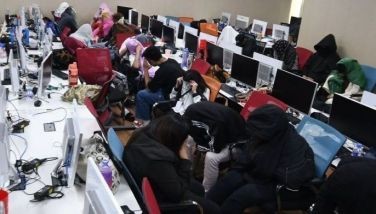Comelec mulls ethics body after Guanzon comment
MANILA, Philippines – Amid the controversy stirred by a comment of Commission on Elections Commissioner Rowena Guanzon on the disqualification of Sen. Grace Poe, the Comelec is planning to create an ethics committee to ensure there will be no abuse of authority.
In a resolution promulgated on Friday, Comelec Chairman Andres Bautista noted the discussion on the procedures in filing pleadings with the Supreme Court, and the creation of the ethics committee.
Bautista said an ethics committee is a “governance tool in a collegial body that ensures there will be no abuse of authority.”
“We will pattern our committee after that of the Supreme Court. We will adopt the SC ethics committee’s best practices,” Bautista said.
The Comelec chief said the creation of the committee does not intend to investigate Guanzon.
“It is not directed toward anybody,” he said.
On Jan. 7, Guanzon submitted a comment to the high court, regarding an appeal filed by Poe against a Comelec ruling disqualifying her in the presidential elections.
The ruling stemmed from the consolidated petitions for disqualification filed by former senator Francisco Tatad, De La Salle University professor Antonio Contreras and former University of the East College of Law dean Amado Valdez.
Bautista issued a memorandum asking Guanzon to explain her action, noting he and five other commissioners of the poll body had not reviewed or signed the comment.
On her Twitter account, Guanzon posted that the comment had the authority of the full commission and did not need to be reviewed and signed by other Comelec officials.
The issue raised questions on the Comelec’s procedure in the filing of pleadings.
Despite the controversy, the Comelec promulgated Resolution 10039 to ratify and validate the comment, which means the poll body will not replace it with a new comment signed by the entire commission.
Comelec Commissioner Christian Robert Lim has opined that the poll body should not take part in Poe’s cases at the SC.
Lim said the Comelec is just a nominal party in the case and the commissioners must not participate therein as provided under the Rules of Court.
“The Commission en banc must leave to the respective parties the obligation to defend their individual positions. The Supreme Court can decide the controversy without the commission’s participation in the certiorari proceedings,” he said.
Lim said the high court has ruled that the “active participation” of a judge, being merely a nominal or formal party in the certiorari proceedings, is not called for.
- Latest
- Trending































